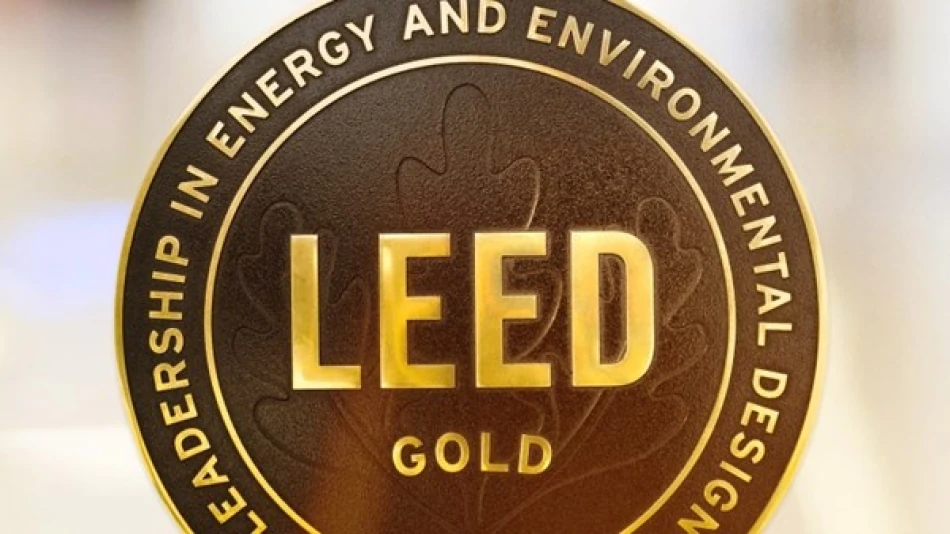
Leading Ports and Customs Earn Prestigious Sustainability Certification
Dubai Port Authority Sets Green Infrastructure Benchmark with LEED Gold Certification
Dubai's Ports, Customs and Free Zone Corporation has achieved LEED Gold certification for its Rashid Port headquarters, marking a significant milestone in the UAE's ambitious sustainability drive. The certification, awarded by the US Green Building Council, positions the nine-story facility as a model for sustainable infrastructure development in the Middle East's logistics sector.
Beyond Compliance: A Strategic Environmental Investment
The LEED Gold certification requires projects to score over 60 points across stringent sustainability metrics, making it one of the most rigorous green building standards globally. This achievement reflects more than regulatory compliance—it represents Dubai's calculated bet on environmental leadership as a competitive advantage in global trade.
The 1,000-employee facility incorporates 64 electric vehicle charging stations, exceeding local requirements, and features rooftop solar panels generating 320 kilowatts of power. These installations provide approximately 33% of the building's energy needs compared to conventional structures, translating into substantial operational cost savings over the facility's lifespan.
Market Implications for Regional Development
This certification arrives at a pivotal moment for Middle Eastern infrastructure development. As global supply chains increasingly prioritize ESG compliance, ports and logistics hubs with verified sustainability credentials gain competitive advantages in attracting international partnerships and investment.
The timing aligns with Dubai's broader Vision 2071 environmental strategy, which aims to position the emirate as a global sustainability leader. For international shipping companies and logistics providers, partnering with certified green facilities increasingly influences corporate sustainability reporting and stakeholder relations.
Setting Regional Standards in Sustainable Logistics
Said Al Bannai, Executive Director of Institutional Support Services, emphasized that the certification validates the organization's commitment to sustainable construction practices and employee welfare. The facility's design prioritizes indoor air quality, energy efficiency, and water conservation—factors that directly impact operational productivity and workforce retention.
Comparative Context: UAE's Green Infrastructure Push
This achievement positions Dubai alongside Singapore and Rotterdam as ports integrating sustainability into core operations rather than treating it as an afterthought. Unlike purely regulatory-driven initiatives in some markets, Dubai's approach combines environmental goals with economic competitiveness, creating a replicable model for emerging market infrastructure projects.
The facility's 600-vehicle capacity with dedicated spaces for shared mobility and extensive EV charging infrastructure reflects forward-thinking urban planning that anticipates transportation sector evolution rather than merely accommodating current needs.
Investment and Operational Returns
While initial construction costs for LEED-certified buildings typically run 2-7% higher than conventional structures, the operational savings and enhanced asset values generally provide positive returns within 5-10 years. For a facility of this scale, the 33% energy reduction represents significant long-term cost advantages, particularly given regional energy pricing trends.
The certification also positions the Ports Corporation advantageously for future green financing opportunities and sustainability-linked loan products, which increasingly offer favorable terms for verified environmental performers.
Most Viewed News

 Layla Al Mansoori
Layla Al Mansoori






